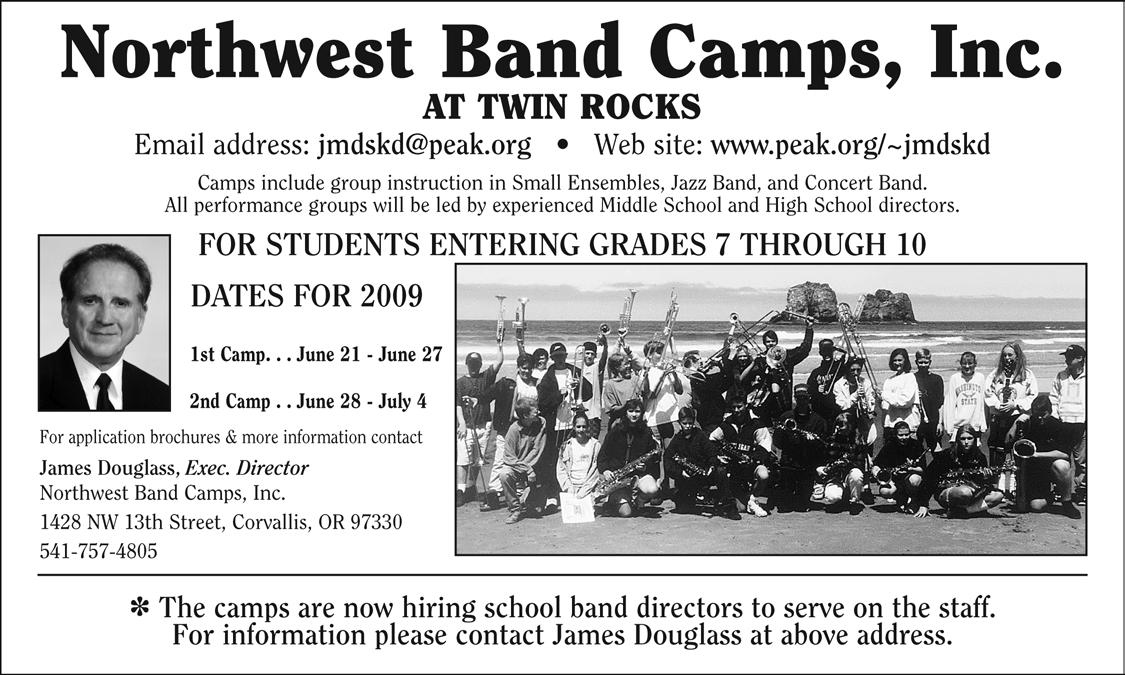
2 minute read
OrffSchulwerkTrainingPhyllisPaul universityofOregon
BenefitstoChildren
Orff Schulwerk is a developmental approach to music education for children. Developed by the German composer, Carl Orff, and his associate, Gunild Keetman, it is based on things children like to do: sing, clap, chant rhymes, dance, and keep a beat on anything near at hand. In much the same way we learn language, these instincts are guided into learning music by first hearing and making music, then reading and writing it. The Orff process invites children to actively make music. By using their voices to speak and sing and their bodies to move and dance, children move from musical imitation to improvisation and literacy. Orff Schulwerk is based on traditional music and folklore and often incorporates unique Orff melody instruments, including xylophones, metallophones, and glockenspiels. These instruments offer children the chance to make “good sounds” immediately. Played together, their use helps children become sensitive listeners and considerate participants.
Advertisement
BenefitstoTeachers
Presently, more than 10,000 teachers in the U.S. use Orff Schulwerk as the way to present the wonder of music to their students. In the Orff approach, music and movement teachers find a comprehensive process for fostering creativity and conveying musical knowledge and skills. Participating in American Orff Schulwerk Association-approved Orff Teacher Training Courses provides teachers with unique opportunities for creative musical growth through their own active participation. Just as Orff Schulwerk centers on the development of the total child, it also invites continual growth of the teacher by offering chances for the constant expansion of musical and pedagogical skills.
Plan to attend Orff Schulwerk Teacher Training Course, Level I, at the University of Oregon—clinicians will be Jim Solomon and Peggy McDonnell. This course is designed to develop understanding of the teaching and learning process using the Orff Schulwerk approach to music and movement. The daily schedule includes focus on rhythm, melody, Orff instruments, movement, recorder playing, improvisation, musicianship, Orff theory, orchestration, and pedagogy/special topics sessions. Anyone with musical training wishing to acquire basic knowledge and pedagogic foundation in the Orff Schulwerk approach may enroll.
Jim Solomon, who is an author, national clinician, and National Board Certified Teacher, has taught Level I Orff for over 20 years. Jim is an outstanding pedagogue. Because he teaches children on a daily basis, his course participants leave the workshop with a plethora of pertinent ideas and activities, all ready for immediate application in the elementary general music classroom.
Peggy McDonnell has been teaching classroom music rooted in the principles of Orff Schulwerk for 37 years. She is a founding member of the Portland Orff Schulwerk Association and served as president from 1976 to 1978. Peggy is especially interested in exposing children to music and dance from other world cultures and in making the music of the Schulwerk come alive for children.
The Level I Teacher Training Course will be held at the University of Oregon School of Music, June 22 through July 3. Non-credit tuition is $650. Participants can earn up to six graduate credits for the class and are provided with packets containing all activities included in the workshop. For all other information, including registration forms, required materials, and lodging/meals, please visit the U of O Orff website (http://music. uoregon.edu/EventsNews/Camps/Orff. htm) or contact Dr. Phyllis M. Paul (ppaul@ uoregon.edu).
For more information about Orff Schulwerk, visit the America Orff Schulwerk Association homepage at http://www.aosa.org/.










